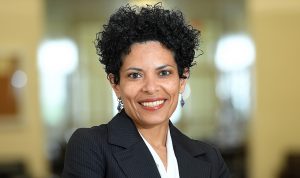Reflections on social inclusion and cohesion on campus and in community

Photo by Kevin Patrick Robbins.

As I reflect on my first year at McMaster, I feel a tremendous sense of accomplishment in being a part of an exceptional Canadian university – exceptional by many measures of excellence, including its commitment to embodying equity, diversity and inclusion (EDI).
Exemplifying this commitment to EDI is the recent launch of McMaster’s EDI Strategy, which signals possibility and promise for achieving inclusive excellence aspirations at McMaster. All work undertaken to advance EDI takes place on the traditional territories of the Mississauga and Haudenosaunee Nations and within the lands protected by the Dish With One Spoon Wampum Agreement.
While both related and distinct from our EDI efforts, we continue to focus on Indigenous rights and entitlements and to responding effectively and thoughtfully to the recommendations of the Truth and Reconciliation’s Final Report.
This past year, I joined many members of diverse McMaster and local Hamilton communities in feeling the profound impact of several global incidents of homophobia, anti-Semitism, Islamophobia, and anti-Black racism. We were also gripped by the enormous community loss highlighted by the ongoing movement to inquire into Missing and Murdered Indigenous Women and Girls.
These incidents resonated locally for several reasons: the local and global are increasingly becoming interconnected given the changing demographic of our national, local and campus populations; there is greater interdependence of nations politically and economically; the saliency of the Truth and Reconciliation Commission Report requires that we consider how to meaningfully address the legacies of colonialism; and, incidents of xenophobia and hate crimes are on the rise around the world.
A 2018 Globe and Mail article reported a fourth consecutive year of increased incidence of police-reported hate crimes in Canada representing a 47% rise over incidents reported in 2017. The article indicated this was the greatest increase since the advent of reporting these incidents in 2009, with the greatest growth seen in the targeting of Muslim, Jewish and Black populations. We have also to consider all the unreported hate crimes, including the unresolved cases in relation to Missing and Murdered Indigenous Women and Girls. We also know that, in the last several years, Hamilton has been listed among the cities with the greatest number of reported hate crimes in Canada.
In April of 2019, I was invited to give a talk at the Freedom of Speech on Campus Conference, which was organized for leaders of Canadian universities to discuss emerging issues in relation to freedom of expression. During my presentation entitled, Upholding the Value of Inclusiveness in the Freedom of Speech Discourse, I suggested that while inclusion requires respect, true inclusion requires so much more.
True inclusion requires a sense of belonging in society and an ability to activate and exercise one’s human rights, including the right to equal opportunity in education and employment, and the right to live a dignified life where one’s true and full self is unconditionally accepted and where one is free from harassment, discrimination and violence.
At the Freedom of Speech Conference, leaders and experts discussed the importance of differentiating unconsciously biased and even intentionally disrespectful speech and acts, which may be protected under the banner of free expression in Canada’s Charter of Rights and Freedoms, from discriminatory speech and acts prohibited in Canada’s Human Rights Act, and hate speech or hate crimes prohibited in the Criminal Code.
In the context of the rise of expressions of xenophobia, there was consensus among Conference participants about the need to continue to examine and re-imagine civil and criminal legal frameworks and case law to help guide our thinking about where the thresholds lie in this shifting social landscape. There is urgency to this need given that xenophobic beliefs lead to hateful speech and acts which historically, and still contemporarily, have dehumanizing, stigmatizing, pathologizing, and brutalizing effects on marginalized groups in our communities.
Most of us will find xenophobic attitudes, and consequent hateful speech and acts, to be ‘out of sync’ or incongruent with our individual core values and with what we stand for collectively. Overt bias, hate-motivated speech and hate crimes are socially reprehensible to most of us, and we have laws to protect against these socially objectionable behaviours.
That said, in very subtle and unconscious ways, powerful negative stereotypes about certain groups of peoples have insinuated themselves into our psyches and continue to show up as implicit, unconscious, and unintentional personal biases, and as invisible systemic barriers within social structures and policies. These then will dictate day to day behaviours and reinforce inequities in practices if our habits of mind and practice are not regularly and critically examined.
A large part of the EDI work at McMaster is focussed on increasing awareness of subtle unconscious processes, interrupting biased thinking that influences our behaviour, and exposing and addressing systemic barriers.
This is a critically important point with respect to inclusive leadership. Even well-meaning allies and leaders need to bring greater awareness and accountability to decision-making and policymaking to ensure both actions and inactions do not reinforce barriers to social inclusion and cohesion.
McMaster’s EDI Strategy offers the exciting possibility to create a more diverse learning community and workplace characterized by equitable policies and practices, and more inclusive environments on campus.
As I think about the various EDI-related campus and community events which transpired in the last year, I can’t help but reflect on how efforts at McMaster to promote and advance EDI might make a difference beyond our campus by helping contribute to social inclusion and cohesion within and across diverse communities in Hamilton – the host city and partner to which McMaster is inextricably linked and which many who work and learn at McMaster call home.
I wonder whether and how leadership on a cross-sector (education, government, justice systems) community-engaged strategy may help to strengthen social inclusion and cohesion in and for our increasingly diverse communities.
Now, more than ever, is the time for each of us to play some role, big or small, to improve equity and inclusion for all. This collective effort is critical if we are to protect human rights for each and every one of us.


